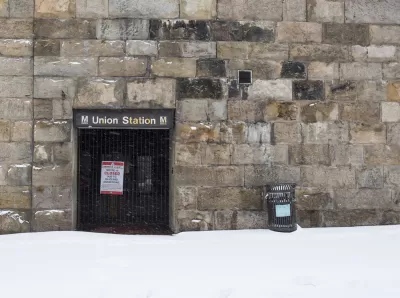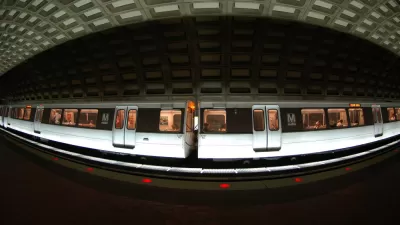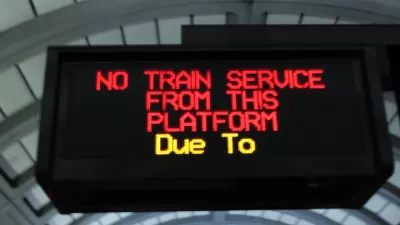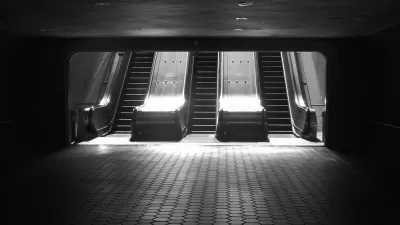Three proposals, that is, save one. David Alpert wants to know why the public isn't considering another option for delivering necessary repairs to the D.C. Metro system.

According to an article by David Alpert, "[D.C.] Metro has released three specific scenarios to cut late night service, but it offers still few specifics on why it's necessary or what alternatives there can be."
Metro staff is currently seeking go-ahead to hold public hearings on the end of late-night service. Public response to an initial service reduction proposal, announced in July, led Metro staff to proposed two alternative scenarios, which Alpert describes.
The question that's burning Alpert, however, is whether these service cuts are necessary for the track work needed around the system. One alternative not currently under consideration, but proposed rhetorically, at least, by Alpert, is to shut down the one line at a time. He posed that question to D.C. Metro General Manager Paul Wiedefeld, who responded that closing down one line at a time would be too confusing for riders.
FULL STORY: Metro is pushing ahead to cut late-night service with three unsatisfying options

Planetizen Federal Action Tracker
A weekly monitor of how Trump’s orders and actions are impacting planners and planning in America.

San Francisco's School District Spent $105M To Build Affordable Housing for Teachers — And That's Just the Beginning
SFUSD joins a growing list of school districts using their land holdings to address housing affordability challenges faced by their own employees.

The Tiny, Adorable $7,000 Car Turning Japan Onto EVs
The single seat Mibot charges from a regular plug as quickly as an iPad, and is about half the price of an average EV.

Seattle's Plan for Adopting Driverless Cars
Equity, safety, accessibility and affordability are front of mind as the city prepares for robotaxis and other autonomous vehicles.

As Trump Phases Out FEMA, Is It Time to Flee the Floodplains?
With less federal funding available for disaster relief efforts, the need to relocate at-risk communities is more urgent than ever.

With Protected Lanes, 460% More People Commute by Bike
For those needing more ammo, more data proving what we already knew is here.
Urban Design for Planners 1: Software Tools
This six-course series explores essential urban design concepts using open source software and equips planners with the tools they need to participate fully in the urban design process.
Planning for Universal Design
Learn the tools for implementing Universal Design in planning regulations.
Smith Gee Studio
City of Charlotte
City of Camden Redevelopment Agency
City of Astoria
Transportation Research & Education Center (TREC) at Portland State University
US High Speed Rail Association
City of Camden Redevelopment Agency
Municipality of Princeton (NJ)





























